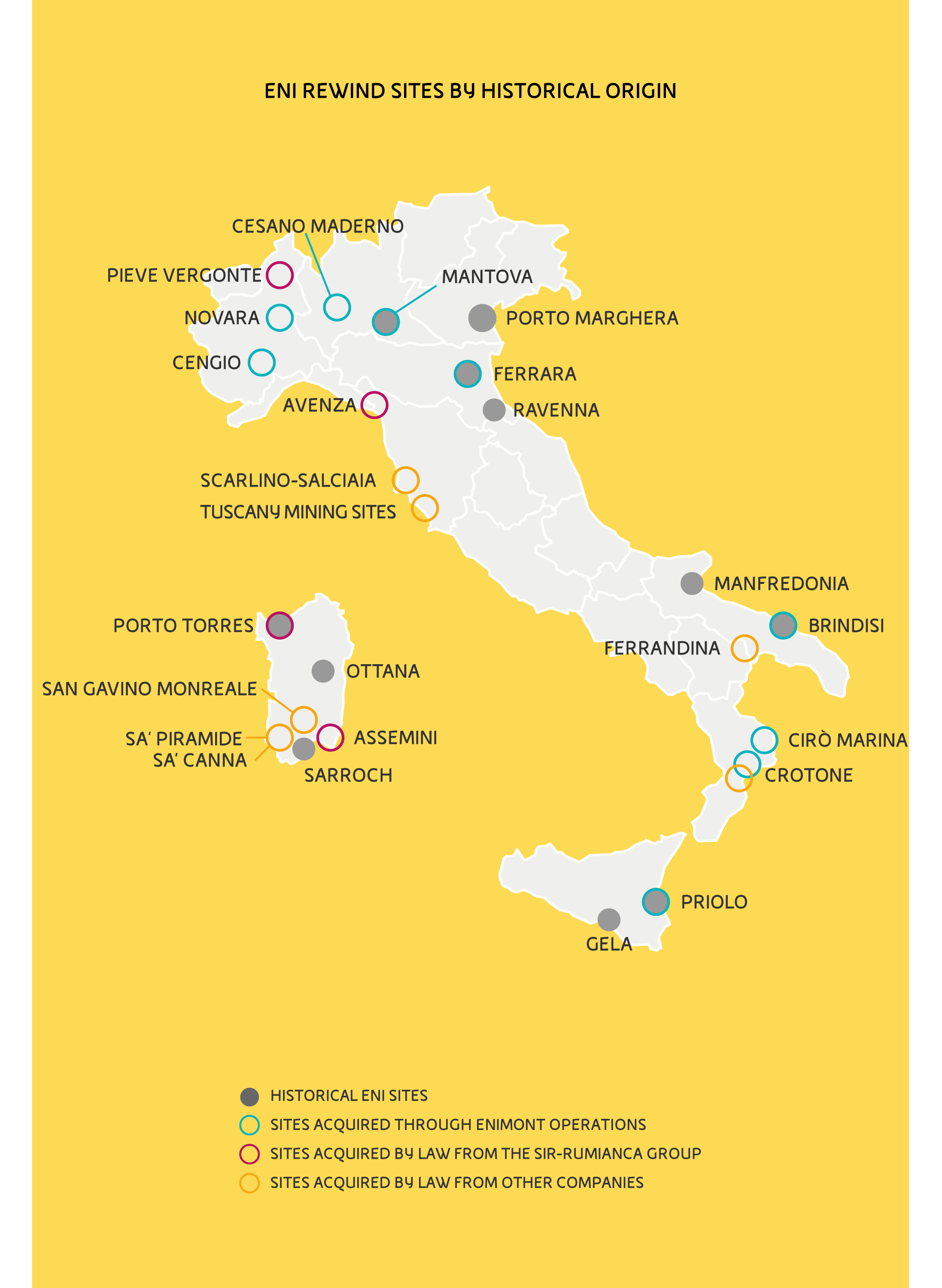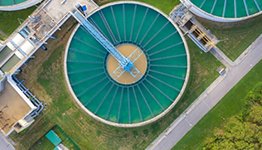Our history is closely linked to Eni's. It began in 2003, when Enichem transferred its production activities to Polimeri Europa (now Versalis) and was renamed Syndial. It had the mandate to manage the remediation of former industrial sites and the treatment of water and waste. This path resulted in the growth of our environmental know-how, to the point where we are now Eni's global contractor in Italy and abroad. In 2019, we changed our name to Eni Rewind. This reinforces our mission and supports the company’s market expansion as an operator for other companies, in line with the United Nations Sustainable Development Goals.
Our Channels
Your business, our energy
Produtcs and solutions for business and customers Italy and abroad




Enrico Mattei’s intuition
Enrico Mattei, founder of Eni, completes the acquisition of the share capital of Anic (acronym for Azienda Nazionale Idrogenazione Combustibili), acquiring the share held by the Montecatini company

Anic hubs are established
Anic opens petrochemical plants in Ravenna, Gela and Pisticci

Transfer of EGAM to Eni
EGAM (Ente Gestione Attività Minerarie) goes into liquidation and is transferred to Eni through its subsidiary Samim

Transfer of Sir-Rumianca sites
Following the petrochemical crisis, the sites of the Sir-Rumianca group (petrochemicals, chlorine cycle, saltworks) and Liquichimica are transferred to Eni in 1981 under Law No. 784/80

Eni takes over the Enoxy JV
Eni acquires the share capital of the Enoxy joint venture in 1982, a company created following an agreement between Eni and Occidental Petroleum in the USA for the development of synthetic rubbers

EniChem is born
Eni merges the main activities of EniChimica into a single petrochemical company, Enichem. The latter had been managing Anic's companies since 1981 and had acquired them

Enimont is born
The desire to create a large public-private chemical hub led to the creation of Enimont, a joint venture between Enichem, controlled by the then state-owned company Eni, and Montedison

The Enimont operation fails
Eni acquires control of the Enimont JV including the petrochemical plants transferred from Montedison

Eni’s privatisation
The process of privatising Eni began with the company launching its shares on the stock exchange in 1995. Transfer of Enirisorse and Pertusola Sud (mining activities) to Enichem

Enichem becomes Syndial
The company inherits the Enichem areas, with the associated remediation costs, and focuses its mission on the environment. Production activities pass to Polimeri Europa (Versalis)

Ambiente activities to Syndial
Syndial incorporates the remaining activities of Società Ambiente at the Scarlino and Ferrara sites

Porto Torres to Polimeri Europa
Syndial transfers the Porto Torres plant's production activities to Polimeri Europa, keeping its commitment to continue remediation activities on the site

Waste logistics from Saipem
Syndial acquires Saipem's waste logistics division

Environmental services from Saipem
Syndial acquires the Environmental Services business division from Saipem, specialising in design, engineering and environmental studies

Points of sale remediation
Eni Refining & Marketing appoints Syndial to handle the environmental management of decommissioned sites, as well as remediation and reclamation of service stations

Gela’s water management
The Gela refinery company transfers the management of its water treatment assets to Syndial. Syndial becomes Eni's global contractor for environmental activities.

The Waste to Fuel pilot starts
Syndial launches the Waste to Fuel pilot plant in Gela, to test Eni's proprietary technology that transforms organic waste into bio-oil and water

Eni Rewind is born
Syndial changes its name to Eni Rewind, an acronym of Remediation and Waste INto Development.







